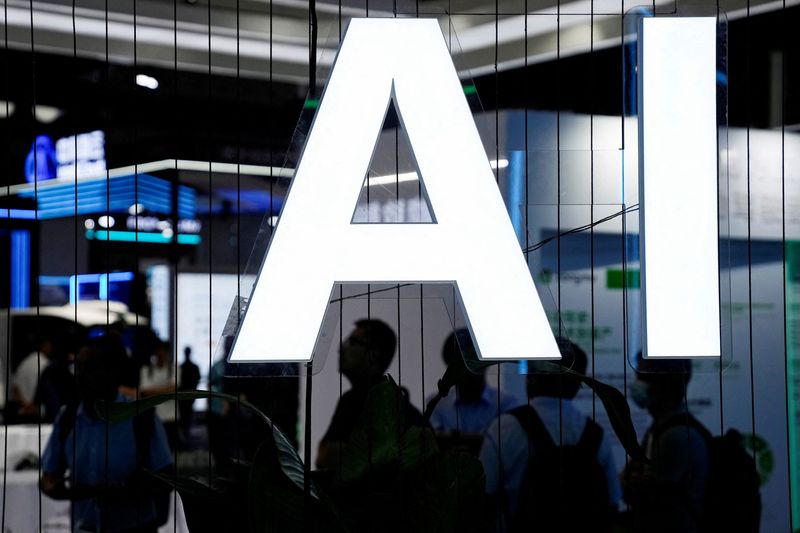The question of whether the bubble in AI equities has already burst is increasingly relevant, especially after a rapid rise in valuations.
Investing.com -- According to Capital Economics, the surge in AI-related stocks, notably driven by companies like Nvidia (NASDAQ:NVDA), has raised concerns about whether the hype has reached unsustainable levels.
Capital Economics analysts said in a note that while AI stocks have enjoyed substantial gains, there have been questions regarding the possibility that the bubble has burst.
They highlight that AI equities have been "priced for perfection" and that even a small shift in market sentiment could lead to significant corrections in stock prices.
This is particularly important given that companies in this space are being valued not just on current earnings but on future, sometimes speculative, growth potential.
However, Capital Economics also points out that while there are concerns about overvaluation, the situation is not yet dire.
The analysts argue that the current AI boom doesn't show the typical signs of a bursting bubble, at least not imminently. They suggest that the AI industry still has considerable room for growth, especially given the ongoing development and deployment of AI technologies across various sectors.
"Our judgment is that the bubble in AI equities hasn't burst," said the firm. "A key reason is that, unlike the bubble a quarter of a century ago, it has mainly been inflated by earnings rather than valuations."
The report also stresses the importance of understanding the broader market context.
Capital Economics says AI equities may face near-term volatility, but the long-term prospects remain promising, particularly for companies well-positioned to leverage AI advancements.
The analysts conclude that while the bubble could burst eventually, it is more likely that AI will continue to drive innovation and growth in the coming years.
Overall, while the future of AI equities is uncertain, the market is not yet at a breaking point, and investors should remain cautiously optimistic, according to Capital Economics.
